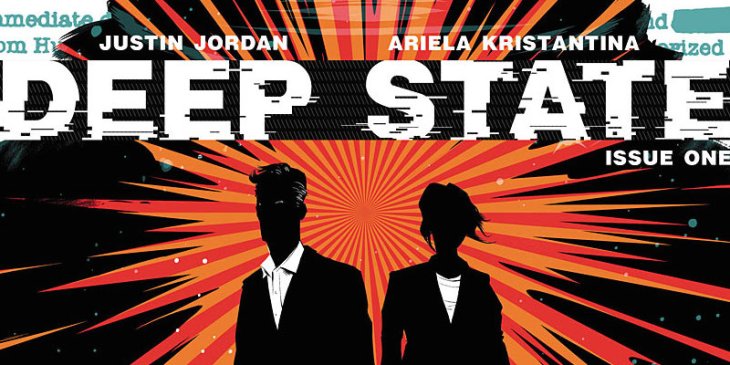Donald Trump; Bernie Sanders; Jeremy Corbyn; Marine Le Pen. If you had suggested only a decade ago that any one of those four might become a significant political figure, you would have been laughed out of any room. What has happened to politics as we knew it? Where are the military-industrial complexes of yesteryear? Is this all Facebook’s fault? Sort of. Not really. Let me explain.
A couple of years ago I wrote about the notion of the Ruling Party–the idea that the doyens of leading political parties have more in common with one another than with most of their own party, let alone the hoi polloi, and become an essence a cabal passing power from one member to another. As the great Scottish science-fiction writer Charles Stross puts it:
Is the United Kingdom a one party state? […] I’m nursing a pet theory. Which is that there are actually four main political parties in Westminster: the Conservatives, Labour, the Liberal Democrats, and the Ruling Party. The Ruling Party is a meta-party…it always wins every election, because whichever party wins is led by members of the Ruling Party, who have more in common with each other than with the back bench dinosaurs
Of late I’ve noticed more and more references to an even more politically paranoid notion: the Deep State. Initially coined to refer to “influential anti-democratic coalitions within the Turkish political system,” the term subsequently spread to Egypt … and now, believe it or not, to the good old USA.
“Vote all you want. The secret government won’t change,” declaims the Boston Globe, summarizing an interview with Michael Glennon of Tufts University. Patrick Smith echoes in Salon:
This is not a democracy […] My concern is with the limits imposed by the entrenched power of our permanent government, otherwise known as the “deep state.” […] “Kennedy was probably the last president not thoroughly approved by the deep state” […] [Obama] appears to have won or lost [foreign policy initiatives] depending on whether the deep state sanctioned the policy direction.
Want more? I give you Mike Lofgrens’s “Anatomy of the Deep State“and two recent Zero Hedge pieces, “Forget The New World Order, Here’s Who Really Runs The World,” and “The Deep State: The Unelected Shadow Government Is Here To Stay.”
Is it true? Is America truly ruled by shadowy figures making secret decisions? …If only things were so simple. The notion seems more than a little hyperbolic. Most of the above verges on conspiracy theory, and some crosses the line. I do love Charles Stross and Zero Hedge, but both veer predictably and gleefully towards the apocalyptic given even the slightest provocation.
But whether it’s true is almost beside the point. What matters is that its fundamental argument, that representative democracy has been subverted on a colossal scale, now verges on conventional wisdom. Blame the Ruling Party, the Deep State, the ultra-rich, and/or the Illuminati and the Knights Templar; it doesn’t matter. Ever larger demographic cohorts are becoming increasingly convinced–very possibly correctly–that Politics As We Know It does not truly represent them, and never will.
Regardless of whether you believe the Ruling Party or the Deep State are actively subverting democracy, there’s little question that the political status quo is almost comically clumsy and prone to massive abuse. Witness the NSA’s deep culture of entitlement to carte blanche surveillance, rubber-stamped by secret courts. Witness procedural end-runs around meaningful protest and debate, such as:
Once upon a time the Serious Media could sweep all this under the rug. Not deliberately, by commission, but passively, by omission; by quietly accepting that this was the way the world worked, and either ignoring or subtly undermining those who disagreed with that precept. But the era of Serious Media gatekeeping is long over. Facebook is the new gatekeeper, the new inflater of filter bubbles, the new widener of Overton windows. And, as The Economist puts it:
Globalisation and digitisation have speeded up the pace of creative destruction […] the forces sweeping through the capitalist economy are also sweeping through politics: the old party machines are imploding, and political entrepreneurs have the wherewithal to take over old parties or to build new ones.
That’s why Jeremy Corbyn, memorably described as a man who “makes Bernie Sanders look like Ted Cruz,” is the new leader of Britain’s storied Labour Party. That’s why Donald Trump, the most vile major-party American contender in recent memory (no mean feat) still stands atop the polls. Yes, it’s still very early in the interminable American election cycle. But still.
I suspect we are witnessing symptoms of an important political phase shift. “Serious” people may write off the four politicians I mentioned atop this post as risible; but a sizable and growing tranche of the electorate–people who see themselves as freed, by technology, from old media’s blinkers–treat the “serious” candidates, and media, with exactly the same kind contempt. And it is increasingly hard to argue that they have no reason at all to do so.
